These days I'm quarantined in New York
In the movie "Pi's Fantasy Drifting", in order to fight against time and oblivion, Pi carves the daily sunrise and sunset on the boat. I flipped up my Murphy Bed, with a shiny whiteboard material behind it. I started recording the time I fell asleep and got up each day. At the same time, I participated in an overseas Chinese epidemic writing camp. I looked into my heart in the communication with my mentor and peers, and thought about a lot of questions about how I will participate in the world after 2020.
micro apartment
I moved to Manhattan two years ago and rented a single room in an apartment building converted from an old 1920s hotel on the Upper West Side. This building is full of history on the outside and completely renovated on the inside, which won my heart. My apartment is only 25 square meters, and it reflects the sophistication of small space design: a Murphy Bed that can be stowed away in a closet is installed, which is both a living room and a bedroom. Oven and microwave are combined into one, refrigerator, dishwasher and stove are half of the general specifications on the market, and all kitchen appliances are embedded into the overall cabinet. The floor height of 2.75 meters reduces the sense of oppression, and the huge windows allow light in every corner. The roof deck can be used for barbecue gatherings, and there is also a public garden where vegetables can be grown. Downstairs is the gym and lounge. The back office management was very kind and made me feel like home.
Out of the door, to the left front courtyard is the entire Central Park, and to the right rear garden is the riverside green space that stretches the Hudson River. There are no less than 10 supermarkets within walking distance, including an H Mart (Asian supermarket run by Koreans). Not to mention more restaurants, including four authentic Sichuan restaurants and two decent Cantonese restaurants. In terms of fast food, there is a famous Xi'an restaurant (chain) that sells mutton steamed buns and various noodles. There is also a spicy hot pot. The surrounding theaters, concert halls, cinemas, libraries, and theme bookstores are also dotted.
There are actually very few personal items I need, and one room is enough. Others rely entirely on community functions and city service networks. I think this kind of life highly presents the ideal model of the sharing economy. Just how much challenge will this kind of life be faced when the epidemic comes?
I am a very quiet person. At the beginning of March, I started going home to work, and because I had an excuse not to go out to socialize, I was secretly happy at first, reading and painting at home alone was not boring. Most of my friends and work teams are not in the same city. Instead, they borrow the light of isolation, and occasionally they can have dinner together while videotaping. In the first three weeks of March, I would go out for a run and buy food every day or two. It wasn't until March 23 that New York announced that it would stop all non-essential business activities.

In the movie "Pi's Fantasy Drifting", in order to fight against time and forgetting, Pi carves the scene of sunrise and sunset every day on the boat. I flipped up my Murphy Bed, with a shiny whiteboard material behind it. I started recording the time I fell asleep and got up each day. At the same time, I participated in an overseas Chinese epidemic writing camp . I looked into my heart in the communication with my mentor and peers, and thought about a lot of questions about how I will participate in the world after 2020.
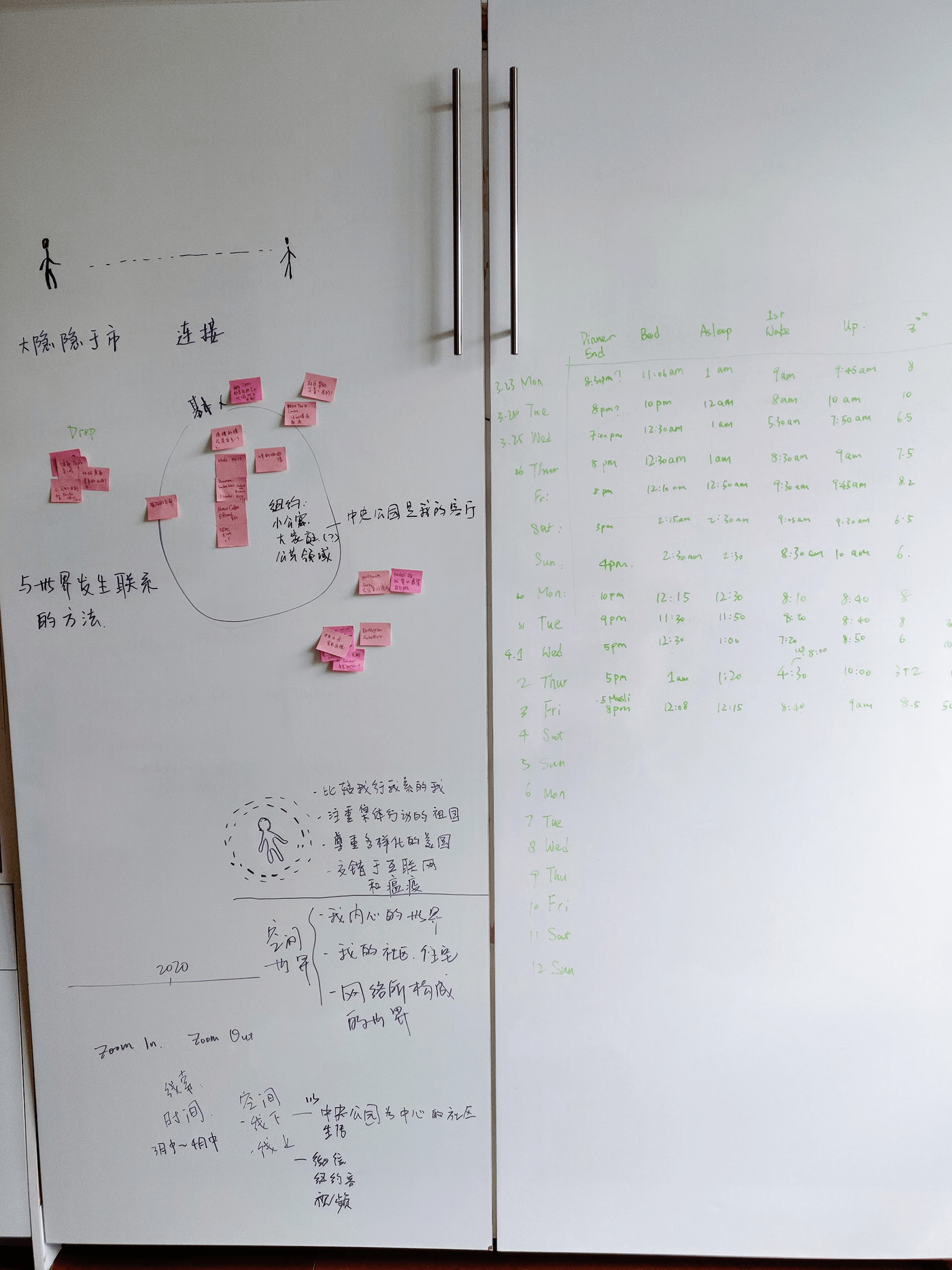
I don't know when it will start, there will be banging and screaming outside the window at dinner time. At first I didn't take it seriously. New York is not a clean city, and the sirens are always blaring. It took me a few days to realize that it was people in the nearby building greeting each other from 7:00 to 7:05 every night.
I joined later. Every day at the hour, he put down his work, opened the window, took out the pot and shovel at home, beat and shouted with everyone. The little sound I made was very limited, but the people on the opposite balcony still heard it. We beckoned to each other, high-fives each other in the air, and the clanging sound brought our spirit to the sky above the building group, like a horn on the battlefield, making people's eyes warm.
I used to like a sentence: the greatness is hidden in the city. I enjoy the benefits of a cosmopolitan city without being distracted by the hustle and bustle of the world in my own little world, and I am complacent. However, isolation, writing, and talking with strangers online made me re-examine this life of solitude, and finally found another version of "Hidden in the City" on the Internet:
Small hidden in the wild, middle hidden in the city, big hidden in the dynasty
In the context of today's raging global plague, my understanding of this passage is that true seclusion is neither hiding in a paradise, nor watching on the sidelines amid the noise, but actively participating in the chaos and noise, and at the same time feeling heartbroken. The mirror shines on the good and the truth in the world. So I picked up the pen that I had put on hold for a long time and participated in the dialogue of the world.
Agricultural Market
Every neighborhood in New York has a fixed farmers' market, allowing citizens to have direct contact with people engaged in food production in addition to supermarket delivery and takeaway fast food, and return to the origin of the food chain. There are specialized agencies at the farmers' market that collect organic waste from citizens' kitchens and return it to the farm to concentrate on composting, reducing the burden on landfills and regenerating the soil. They also sell already decomposed soil, in small bags, which I would buy to grow flowers at home. The green plants at home are growing like crazy, so I trim them off and take them to the farmers market for recycling. In the city, it seems that you can experience a little bit of the reincarnation of life on the farm, the feeling of endless life.
After March 23rd, the farmers market no longer recycles organic waste, and I'm so disappointed. However, I still follow the old habit of sorting out the organic waste and putting it on a plate when cooking, putting it on the radiator next to the windowsill to dry and dehydrate, and then put it in an airtight container and put it in the freezer. Dried and refrigerated organics are less prone to mold. Moreover, large-scale materials such as melon rind and lotus root can be reduced by nearly 80% after dehydration, which greatly saves space. I used to go to the farmers market once a week for "delivery", but now I don't know when the recycling truck will come back. The organic waste in the freezer is visibly increased...
When I came to the farmers market again, the road that used to be swollen and rubbed had become deserted. The stalls have been reduced by at least half. Each stall is separated by a stall, and the store is surrounded by tapes to prevent people from watching.
In fact, the farmers market is built as a neighborhood society in a city. Fixed days, fixed booths. What is the difference between the cheeses sold by Zhang's and Li's, the permanent residents nearby are aware of it. Now the protection is suddenly pulled up, and a sign that people can only see but not touch has been put up, and many parents are short of kindness.
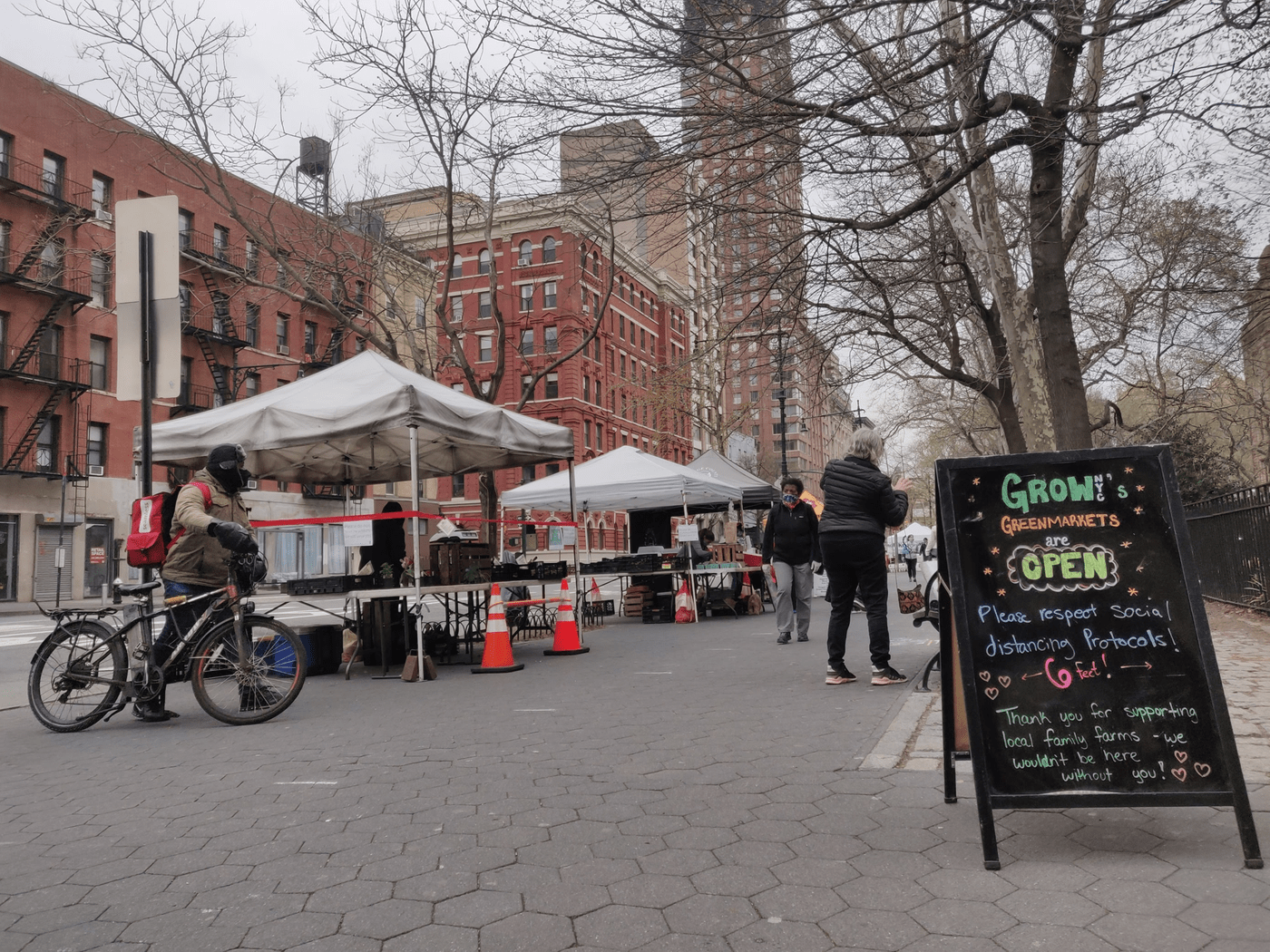
There are chalk-drawn dividing lines on the ground, indicating the distance of the queue.
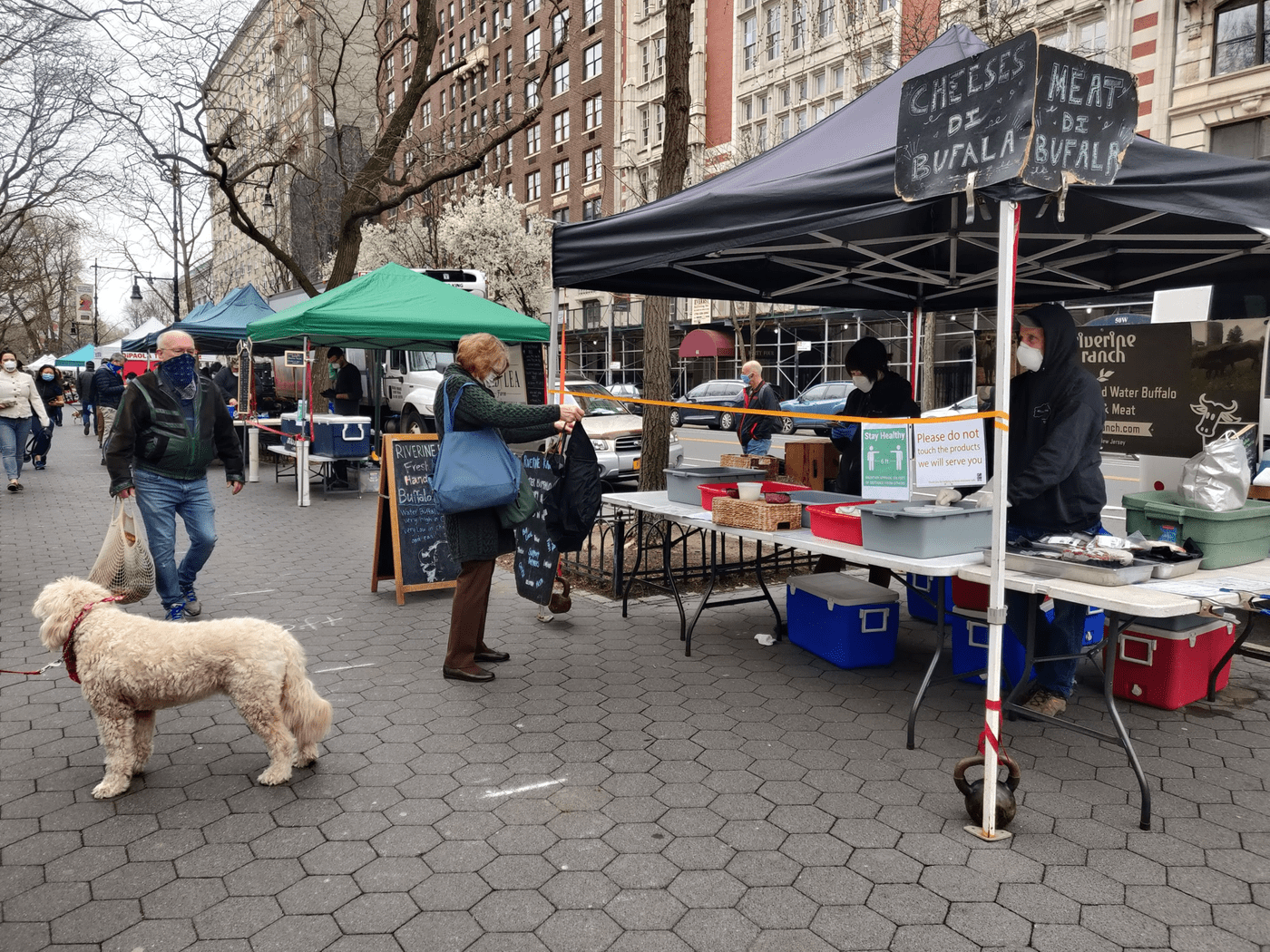
I went to a duck shop I frequent and bought a smoked duck breast. The boss and I exchanged banknotes and goods at a distance, and also exchanged a smiling look through the mask, wishing and looking forward to the return of the farmers' market to its former bustle.
central Park
2020 may not be all that different for the cherry blossom trees in Central Park. As usual, spring came a few days earlier than the previous year, and at the end of February, finely broken flower buds hung on the branches early.
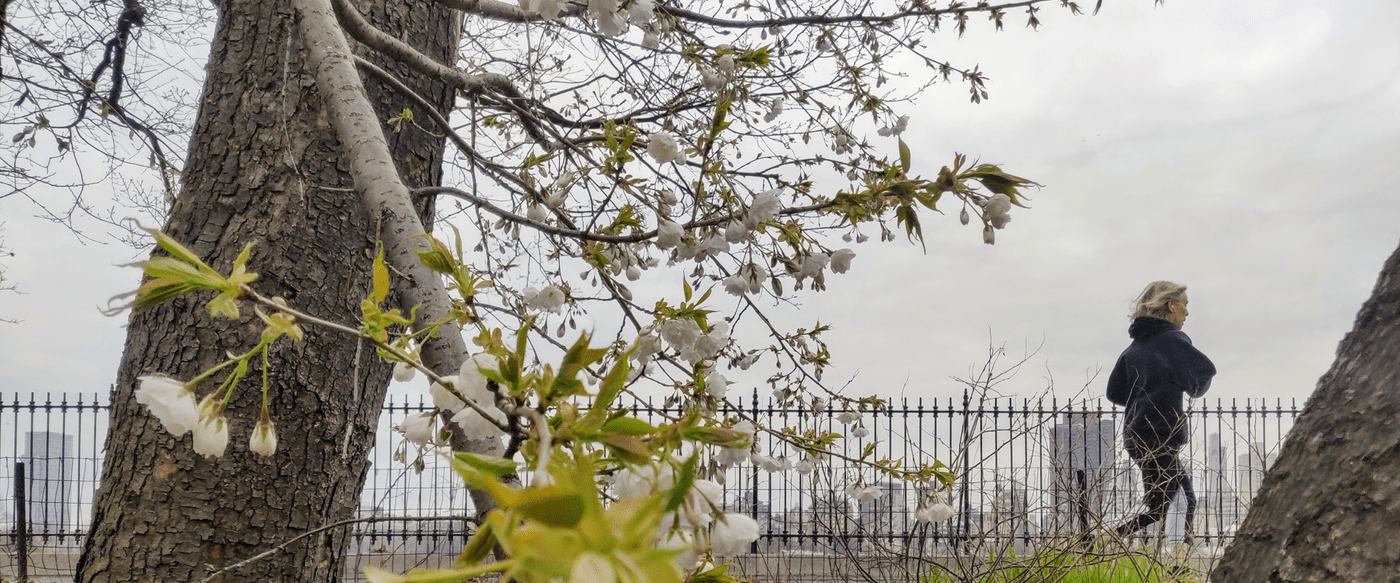
Central Park occupies almost half of Manhattan. At the beginning of March, the cherry blossoms just started to spit, and within a few weeks, they bloomed into endless pink clouds. By the end of May, many small turtles will hatch in the turtle pond, and they will bask on the big rocks with their mother. There is an open-air theater near the turtle pool. In July and August, there are free Shakespeare classic plays every week - it is said that it is free, and the tickets will not be distributed until noon on the same day, on a first-come, first-served basis. Usually there is a long queue at the entrance of the theater before noon, and some people have brought small stools. There are street bands who will come and play for the people in line to earn some reward money.
In early March, Elizabeth Smith, the boss of the Central Park Environmental Protection Agency, tested positive and was quarantined at home. She said that the employees of the park community are all very good, and they are sticking to their posts at such a critical moment to guard our parks; after all, the idea of Frederick Olmsted, the chief designer of the park, was to let the rich go to their forests. Escape the hustle and bustle of the city! Although we ordinary people can't go anywhere, we have the best park in the world.
With the increase in the number of confirmed cases in New York, the requirements for isolation have gradually increased. By the end of March, businesses were closed everywhere, everyone had nowhere to relax, and more and more people were in the park. By the beginning of April, the number of people wearing masks increased significantly, and everyone kept a polite distance. The park used to be a place for a lot of people: playing ball games, dancing with tape recorders on, bands playing, choir rehearsals… all that. I can hear the sound of guitar playing and singing in the distance, the rhythm of folk songs, and the singing of love songs. Feeling grateful, I stepped forward and left a dollar change. I saw that there was only one dollar in his change box. I guess he put it by himself. He thanked me repeatedly, said that in order to avoid contact, he would not send me his business card, and told me to remember his Instagram account.
In the quiet park, the sound of birdsong is particularly clear. Besides the common mallards, bull sparrows, sparrows, robins, I was fortunate enough to meet a beautiful blue jay. The squirrels are also becoming more active, rummaging through the ground for nuts they buried last winter.
I've heard that the hum of ocean-going cruise ships stimulates the production of anxiety hormones in marine life, affecting their fertility. Whales stop singing when cargo ships pass by. April is the season when humpback whales living in the North Pacific lead their calves north into the waters off the southeastern coast of Alaska. Alaska is full of tourists at this time of year. This year may have been a clean and good time for humpback whales in decades. Imagining whales swimming in the ocean without cruise ships and watching the birds at work in Central Park, the stay-at-home order doesn't seem so bad.
run
I was originally a long-distance runner. After moving to New York, I started to practice long-distance running in order to live up to Central Park. At the beginning, I couldn't run for a minute or two, and the good run turned into a walk in a blink of an eye. Later, I started listening to the recording of the running coach, and it took a month to improve to running a kilometer in 10 minutes. Encouraged, I downloaded advanced training again and spent two months practicing three kilometers. After that it stopped a bit. Because the circumference of the best running reservoir in Central Park is almost three kilometers, every time I finish a lap, I have no motivation to continue. I was stagnant at the three kilometers point for half a year, and finally a girl named Sarah gave me a breakthrough.
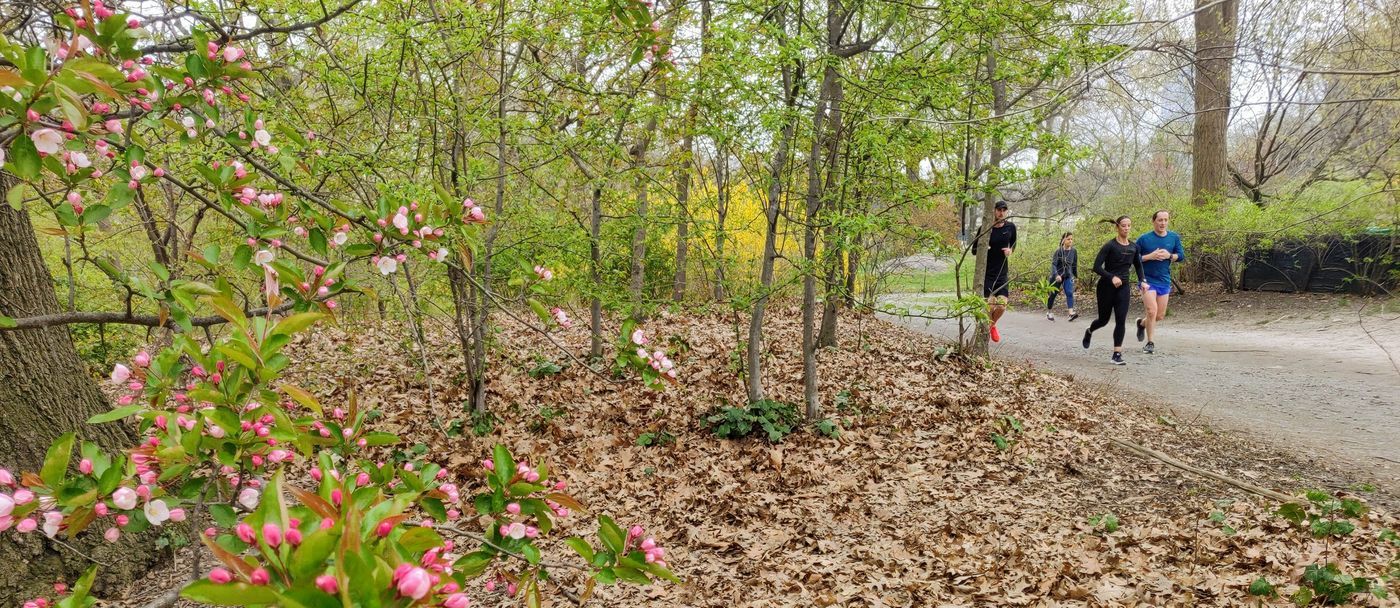
At the end of last year, I signed up to join an organization called New York Cares. It is a service platform connecting free-time citizens and non-profit organizations in the city. You can search the Internet for volunteer service projects of any type at any time in New York City. Through this platform, I participated in the running with the disabled. The event organizer, Achilles International, is a non-profit organization founded in New York in 1983. It aims to encourage, accompany and guide the disabled to participate in sports. It has chapters in many countries and regions. Each Saturday morning gathers at the entrance near the Guggenheim Museum in Central Park, where event leaders pair disabled and able-bodied individuals based on their running experience.
It was a day at the end of January, and the weather was cold and wet, with a little drizzle from time to time. I was in charge of running Sarah with a girl, Natalie, who had been running with me for over a year. Sarah is not physically disabled, just a little mentally handicapped. She wore thick eyes, a scarf she knitted around her, and a yellow Achilles International sweatshirt with the words "Sarah Keep Running!" written in colored markers on the back and a rainbow.
Sarah saw the two of us, an old acquaintance and a new friend, and said with a bright face that she was going to run a big circle. The small lap is the three kilometers I often run, the big lap... I said I have never run before, you lead the way. She said seven kilometers. I was stunned for a moment: I can't show weakness, I am a strong and healthy person! I took a look at Natalie, who was moving her muscles and bones on the side. She has long hands and feet, and she looks good at sports.
Although it was raining lightly, the cold wind was blowing, and the track under her feet was a little muddy, Sarah was in high spirits, and while running, she told me not to worry, seven kilometers is fast. She said she's going to run a long-distance race on Valentine's Day next month and a triathlon next month. I listened and complimented, and she said it was nothing, because this Achilles organization always had healthy people to accompany her.
We passed other team members along the way. There was a particularly large group of people, with three or four accompanying runners following a visually impaired person. One of the runners and the disabled man held a rope between them, slowly adjusting to each other's speed. Several other people led the way. Everyone was in high spirits. There was a man named Mark, who was Sarah's friend. He seemed to come to lead the group often. He passed by our group and sang a song to Sarah while running. Makes Sarah happy.
We passed the Shakespeare Playhouse, Sarah was well-versed to go to the bathroom, and Natalie and I chatted while waiting. She said that she likes Sarah's cheerful and optimistic character the most, and she can run hot on such a cloudy and rainy day. She also said that the organization Achilles has brought her a lot of growth. She will graduate from high school this year and go to college elsewhere, and she has colleges in Charlotte and Rhode Island to choose from. She checked and decided to go to Rhode Island, because there was also an organization of Achilles International there, and she wanted to continue to run with her. I casually asked her what major she wanted to study in college, and she said she was going to study marine science and protect the environment.
When we continued to run, there were other runners passing by from time to time, and many people would read the words on Sarah's clothes: "Sarah keep running!" Sarah always waved to people happily. She is still here. A gentleman who looked to be in his fifties passed us steadily, already on the second lap. His right leg was amputated below the knee, and he was fitted with the elastic leg of a sprinter.
We laughed and laughed and finally approached the end. I don't know who shouted "Hand in hand!", and the three of us rushed the last 100 meters hand in hand. I looked at my watch, 40 minutes, 7 kilometers. Sarah led me to a new record.
It's a little sad to think about it now. In February, I participated in other service activities at New York Cares to try something new, so I didn't go to run with them, thinking that they were there every Saturday anyway, and I could go anytime when I was free. As a result, it dragged on until the outbreak, and now basically all volunteering activities have been cancelled.
Sarah's triathlon is also canceled, right? She worked part-time at a burger joint in Midtown, and once said how delicious the free burger was every time she got it. Now I don't know what kind of impact her life has been hit and how the situation is. When the quarantine is over, it's time for Natalie to go to college. I don't have their contact information, so I can only pray silently and hope they get through this difficult time. Sarah is so optimistic, she should get through it. It should be! I still want to run with you!
watch
I am still running. After being locked up at home for 10 days, I went out and ran on and off for three hours, almost 20 kilometers. After that, I was locked at home for another 6 days, and then went out for a run for another hour. Running outside may be incomprehensible to many Chinese. Is it so difficult to stay at home obediently when such a terrifying thing happens?
Sensational news is published every day in the news, statistics are rising, and emotions are roaring. Faced with the huge unknown in front of us, both the country and the individual will unconsciously react with reference to past experiences. However, each country's crisis memory is different. China had SARS 17 years ago, and the last time the US faced a national crisis was 9/11. After the terrorist attack, the United States has implemented a policy of closing the country for decades, which has spent a lot of social resources "counter-terrorism". American intellectuals have been reflecting on the blow to social life and interpersonal trust caused by this chronic fear. This time, the American people's response to the epidemic is lagging, partly because people are unwilling to surrender and be suspicious of unknown and uncontrollable raids.
As a Chinese who has lived in the United States for more than ten years, I can understand the prudence of the Chinese and the freedom and ease of the Americans. So I can stay at home for a whole week, wearing a mask and running shoes to go out and embrace the sun and wind. This is my home for a few kilometers, and the people here are closely related to me. I want to blend into the steaming city arteries. I don't want to stay out of it.
I'm going to see the makeshift hospital set up in Central Park. I want to know if the medical staff and patients there have heating? How is the water supply and electricity supply? How to arrange garbage disposal?
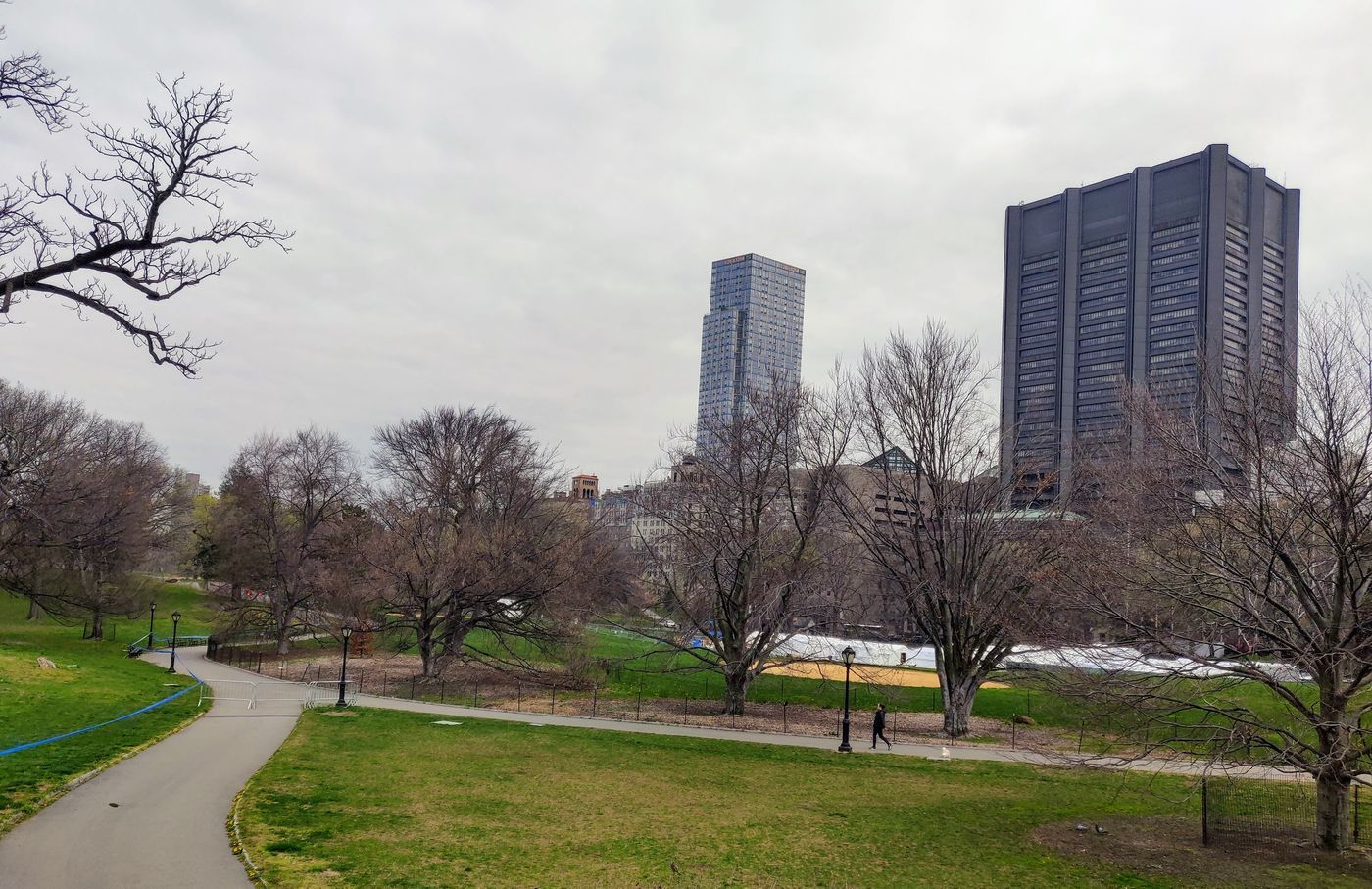
I want to see the neighborhood next door. There are quite a few Hispanic and African American residents a few intersections north of my block. Their communities have been hit particularly hard by the outbreak, with high mortality rates. I would like to stop and observe a few minutes of silence.
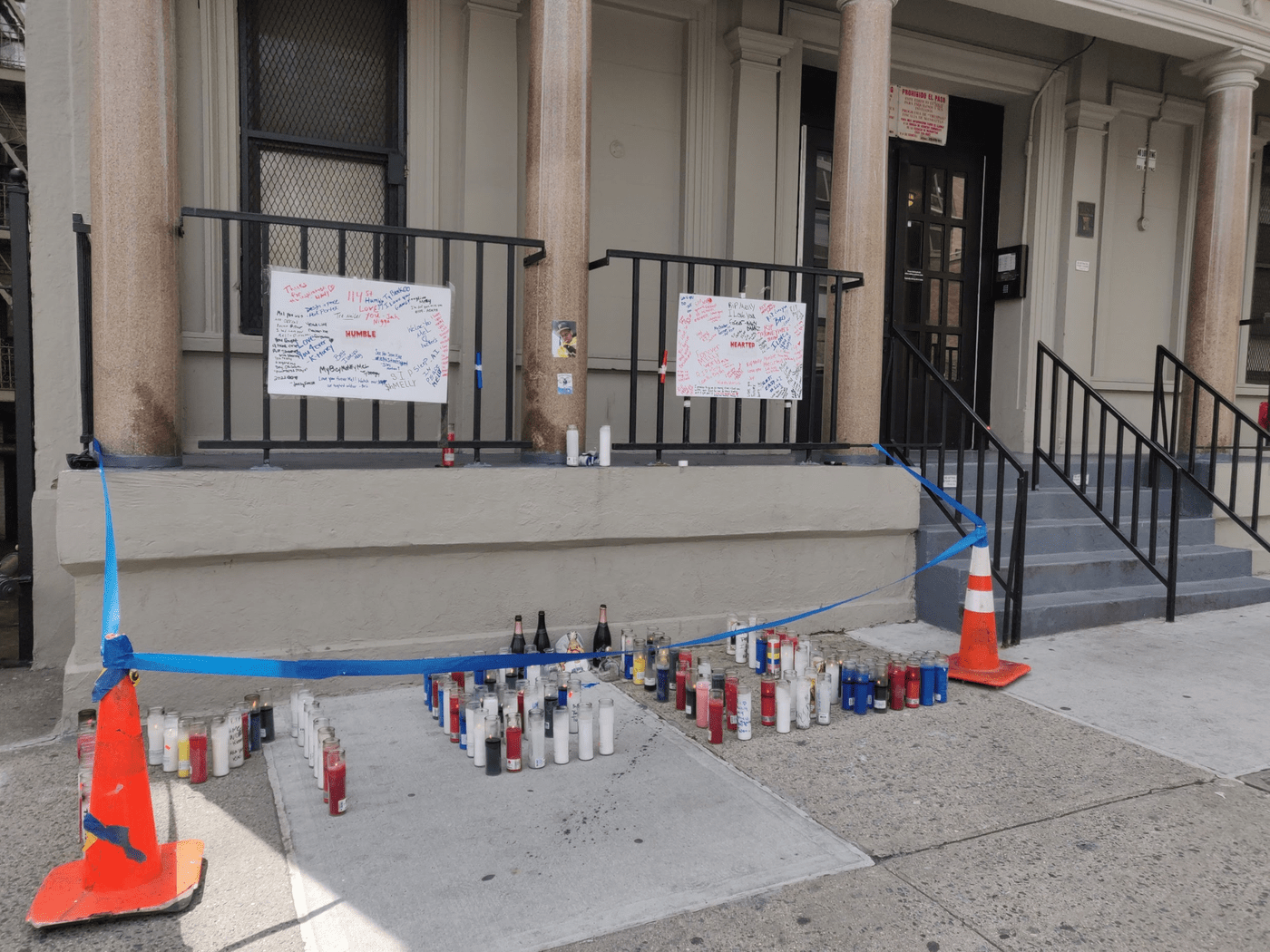
I want to see the independent bookstore on 82nd Street that closed under the impact of the epidemic before saying goodbye. The words Book Culture on its lintel are still faintly recognizable, and will soon be erased. Their store doesn't chase bestsellers, but has a collection of small-scale independent publications of politics, essays, memoirs, old novels, and intricately designed ceramics. Many shop assistants are writers. How many overlord books have I read in it!
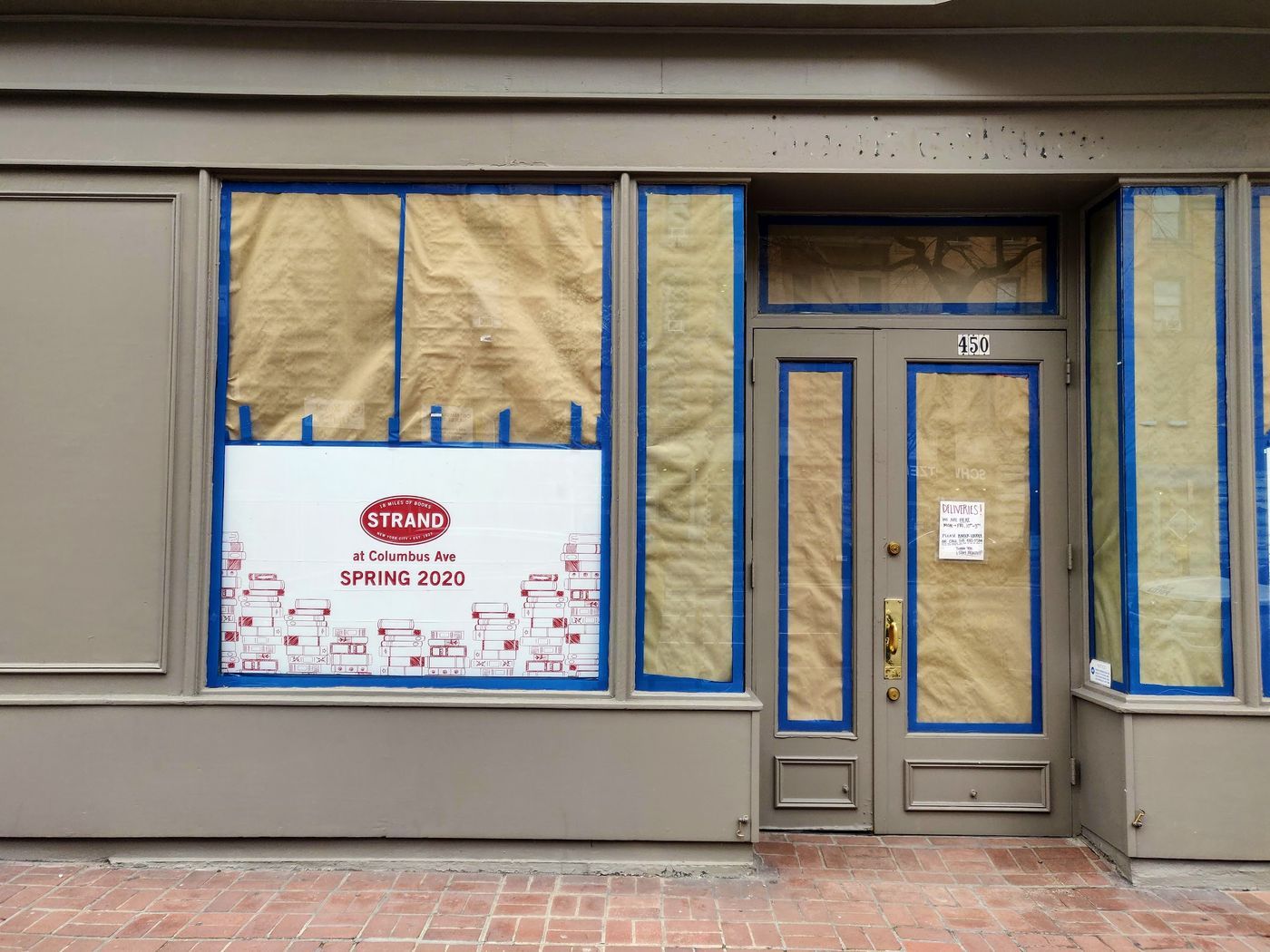
There are also the doorman at the front desk of the apartment, the closed hair salon downstairs, the closed coffee shop, and the spicy hot pot that only delivers takeaway... I want to see if they are all right, and what announcements have been posted, and whether they need to donate or donate masks. .
The weather is getting warmer. Someone wrote the words in chalk along the path in the park:
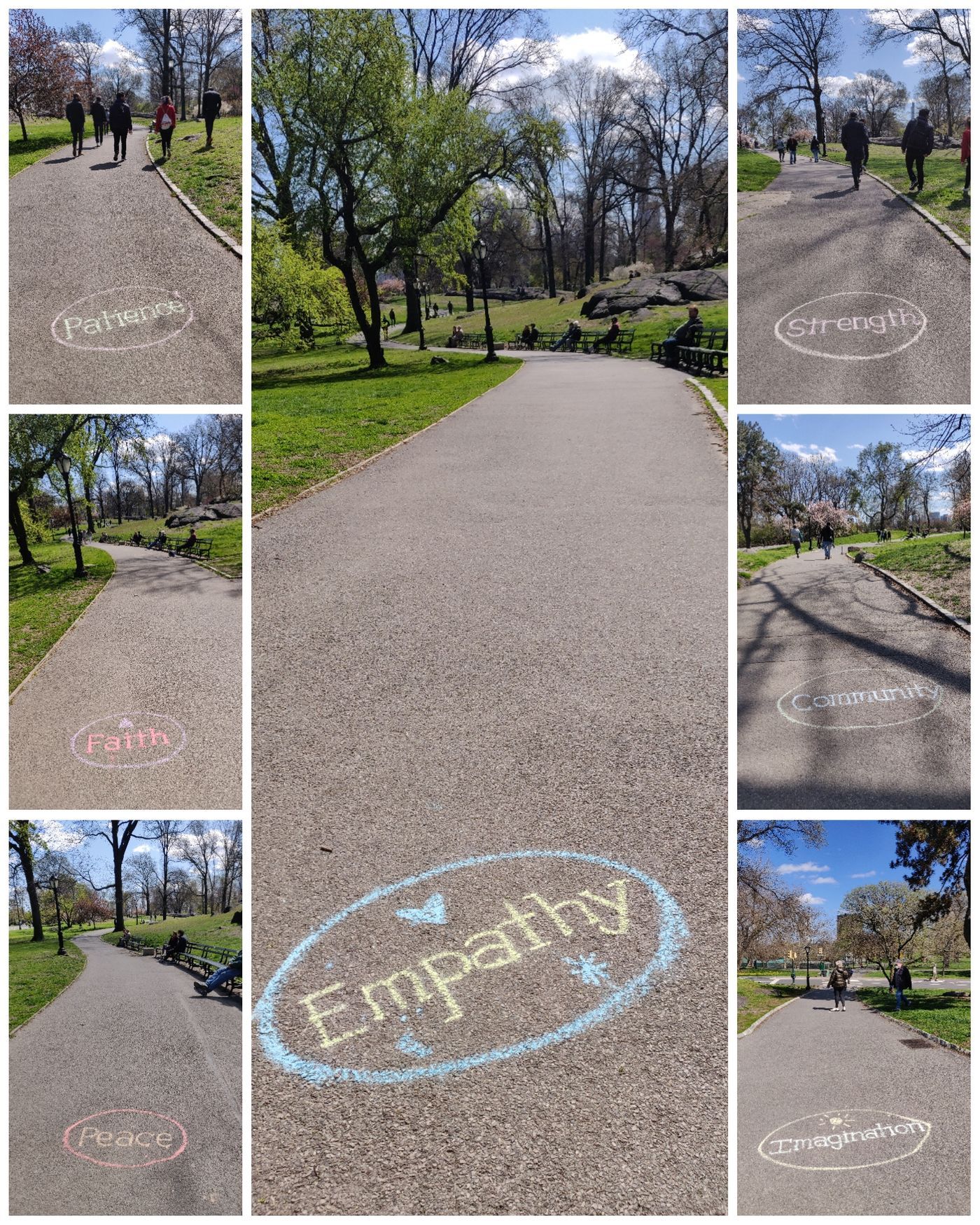
I've always felt that Central Park has a magical power. It reminds me that the fallen leaves will grow again, and the people here will not leave. The sun rises as usual and life goes on.
Like my work? Don't forget to support and clap, let me know that you are with me on the road of creation. Keep this enthusiasm together!

